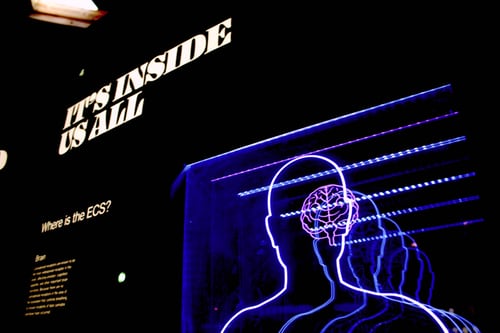You know that default, offhand or sometimes blatantly judging question we all get asked when meeting someone for the first time “what do you do?”
Well, depending on my mood and how I choose to answer in that moment I get a range of reactions. I have found when I give the answer, “I’m a hypnotist” (as opposed to a Dietitian, Biomedical Scientist or Health Consultant) to be when I get the most interesting series of responses (which means I tend to go with this one more often- it’s literally just as “normal” a profession as any of the others, promise).
Often there’s scepticism, intrigue or people somewhat proudly wanting to share that they can’t be hypnotised and then there’s the ones who’ve had wonderful hypnosis experiences and they usually become my instant mates.
In most cases, it only takes a few moments before people usually want to know what it’s like to be hypnotised.
Which is why in today’s post I wanted to share with you what it’s really like to be hypnotised.
As well as this I’m going to also discuss why hypnosis is useful and share with you a sample of the sorts of things medical and clinical hypnotherapy are commonly used to help with.
Here we go…
What Even Is Hypnosis?

Did you know you’ve already experienced hypnosis?
Many people are surprised to learn that hypnosis is a normal and natural state.
A normal and natural state that you have entered into and out of many times throughout your life (and will continue to do so for the rest of your life).
To help you understand how or when you may have experienced hypnosis think back to a time you drove to work or some other place you drive often. Do you ever remember having the experience of having arrived at your destination with no real recollection of how you got there?
Essentially your brain was on autopilot or in a kind of hypnotic trance.
As you drove you likely thought about other things (your husband on his phone all through dinner, what you’re planning on having for lunch, remembering what John Smith said to you in 3rd grade or maybe you were mentally rehearsing a presentation you had to give later that day and so on).
All the while in the background your brain took care of the infinite number of intricate and coordinated steps which culminated in your safe arrival at work.
Your brain knew where you were going and what thoughts and actions it had to produce to get you there because you’d driven a car and taken that route many times before.
The “habit” was well formed, and unless something dramatic or unexpected happened along the way and your conscious mind was alerted that it’s input may be useful here, you likely didn’t even realise you’d “zoned out” until you reached your destination.
Another example is if you take the experience of the last time you were fully absorbed in a movie.
Do you remember being so completely caught up in the lives of the people on the screen that maybe you even cried over some hardship your favourite – entirely fictional – character had to face? That’s hypnosis.
It’s not only amazing and fun that our brains have the capacity to do this but also completely necessary.
Our brains are bombarded with endless streams of information coming in from the outside world, as well as constant feedback about the state of our internal world that it would simply not be possible for all this information to be processed at the conscious level, let alone decisions made over what to do with it and how to respond.
So, thankfully there’s these other parts of our brain and body which are able to process and respond to far greater amounts of information than our conscious minds, often without the need to ever bring it to our conscious awareness.
If you like you can take a moment to say one big thank you to your heart, lungs, pancreas, stomach, kidneys, liver, eyes, everything right down to the internal workings of each and every one of the 37.2 trillion cells estimated to make up the average human body for getting it right!
If we had to do even a fraction of this consciously, we’d literally be overwhelmed before we’d even managed to get out of bed at the beginning of the day!
Long story short hypnosis is a normal and natural brain state characterised by increased theta waves throughout the brain which are associated with increased focus and control over your body, less inhibition, enhanced capacity for learning and creativity.
Why Is This Altered Mental State Called “Hypnosis” Useful?

Given that the majority of our brain activity happens from the level of our unconscious mind it makes perfect theoretical sense that utilizing this state would have far more profound effects than our conscious mind and happily in practice we find it does.
It turns out we can harness the state of hypnosis for therapeutic benefit with incredible results.
To illustrate the power of hypnosis I want you to think of a time you’ve tried to make a change in your life.
Perhaps you want to or have even had a few attempts at stopping doing some unhealthy or dangerous behaviour that you know consciously if you were to do so would make your life better (for example smoking, excessive drinking, yelling at your kids or husband, checking your phone while driving and so on).
Or perhaps you’ve tried to start doing some healthy or fulfilling behaviour (eating a healthy breakfast, reading more, finishing projects before 2am the night prior to D-day, arriving on time and so on).
Yet despite your best efforts the change is only ever, transient at best and at worst you’re still planning for its commencement some time in your future…
This is where hypnosis can come in because the operation of any of these habits you’re currently doing is at the unconscious level (in fact about 45% of what we do on any given day is habit).
Which means all the education and willpower in the world aren’t going to truly change them because the “problem” simply isn’t operating at this level, you’ve already recognised it’s something you’d like to change and you’ve likely also got all the information and incentive you need to follow through.
With hypnosis you can cut though all the unnecessary heartache and get straight to the point, because when you change something from the level of your neurology the change is sustained without the superhuman willpower and even without the need to remind yourself.
In essence, it becomes your new normal.
Why I love hypnosis is that it truly allows the new action to become natural, easy and effortless, almost as if it has always been so.
Think about this if it’s something you want to do anyway, how is it beneficial to be at war with yourself to do it? It’s not! No one in the history of the universe has ever stressed, tricked or fought their way to health, happiness and success.
Hypnosis allows for the change to become so natural and normal that after working with someone to overcome a limitation in their life, for example a phobia, to say something like “well I guess I wasn’t truly phobic at all” when they no longer have the automatic fear response come up. In these cases, I often joke around with the offer to reinstall it and that usually reminds them of how real it once was!
On A Personal Note: My Experience with Hypnosis and Healing from Anorexia Nervosa

I would probably still be, in all reality, an avid disbeliever in hypnosis if I’d not experienced it for myself.
There are thoughts, feelings and behaviours I did when I was sick on a daily basis, even an hourly basis which I felt compelled to do. The compulsions were so relentless and all-consuming that they felt like my natural way of being. I could never in my wildest dreams in the midst of them have imagined being able to make myself not do.
Now, it’s not that I am so much stronger that I am able to force myself to not, it is that I don’t even think about doing them.
In all honesty, when I think about some of them, I feel so much compassion towards myself at how stuck I was but also a kind of removed disbelief at what was once my reality.
Now, more than anything all those thoughts, feelings and behaviours feel like a huge effort to even consider reengaging in.
Which is phenomenal given that once upon a time I had no say at all.
What Is Medical and Clinical Hypnotherapy Used for?

There are now numerous recognised applications for hypnosis.
There’s humour and entertainment which most people are familiar with in the forms of stage hypnosis shows and “acting like a chicken” but there’s also the fields where, to me, it gets very, very interesting and that is in medical and clinical hypnotherapy.
In a nutshell clinical and medical hypnotherapy ultimately allow for greater control over our body.
Modern hypnotherapy is widely accepted for the treatment of anxiety2, subclinical depression2 certain habit disorders, to control irrational fears3,4 as well as in the treatment of conditions such as insomnia, addiction, eating disorders, PTSD and gambling. Hypnosis has also been used to enhance recovery from non-psychological conditions such as after surgical procedures5, during childbirth and gastrointestinal problems including IBS6.
On top of these (and many other) therapeutic applications clinical hypnotherapy is also used to enhance performance, be this business, sporting or other with many well knowns sportsmen and women working with hypnotherapists to greatly improve their performance (FYI this includes Tiger Woods and Michael Jordan).
A couple of truly awesome things about hypnotherapy are that it has no negative side effects, generally takes far less sessions than more traditional therapy routes like CBT and works to empower the individual to take leadership and responsibility over directing the course of their own life.
Parting Insight on What It’s Really Like to Be Hypnotised

In case you’re thinking after reading this far that I didn’t give the most straightforward answer on what it’s like to be hypnotised, you’re right.
Why? Because aside from hypnosis and trance being normal and natural states of consciousness and giving the examples of having found yourself lost in the process of doing something be this driving, a movie, doing an activity you are great at and enjoy including playing sport or work I can’t tell you exactly what it’s really to be hypnotised.
I can tell you what it’s like for me, I can describe my first experiences with hypnosis and my current experiences with hypnosis, I can even describe some of my clients experiences with hypnosis but I can’t tell you exactly what it’s really like to be hypnotised for you.
That’s something you’ll have to find out for yourself!
(Which, just in case you missed it, I highly encourage you to do so)
Hypnosis is an experiential experience which means all the knowledge, information or descriptions in the world of what it is and why it works will always fall short because they will not give you the experience nor, most importantly that change you seek.
In my view hypnotherapy is only as useful as the results you are getting.
Hypnosis is in my experience, the most powerful means by which you can achieve your goal because hypnosis is about learning how to work with, instead of fighting against your brain. A pretty important notion given that one guarantee in life is that this brain you have now is the one you’ll have until the day you die.
Surely, you’d be hard pressed to think of something, anything more important than learning how to have your neurology fully and completely support you, wouldn’t you?
With My Whole Heart I Hope You Found This Information Useful and Inspiring

Become Great. Live Great.
Bonnie.
Reference
- Mathur S, Khan W. Impact of Hypnotherapy on examination anxiety and scholastic performance among school children. Delhi Psychiatry Journal, 14(2), 337-342
- Mirzamani, SM., Bahrami, H, Moghtaderi, S., & Namegh, M. The effectiveness of hypnotherapy in treating depression, anxiety and sleep disturbance caused by subjective tinnitus. Zahedan Journal of Research in Medical Sciences. 2012. 14:(9);76-79.
- Crawford HJ, Barabasz AF. Phobias and intense fears: Facilitating their treatment with hypnosis”. In Rhue, Judith W. Lynn, Steven Jay; Kirsch, Irving. (Eds.), Handbook of clinical hypnosis. Washington, DC, US: American Psychological Association. 1993. pp. 311-337.
- Gow MA. Hypnosis with a 31-year-old female with dental phobia requiring emergency extraction. Contemporary Hypnosis. 2007. 23;(2):83-91.
- Diamond SG, Davis OC, Schaechter JD and Howe RD. Hypnosis for rehabilitation after stroke Six case studies. Contemporary Hypnosis. 2006. 23;(4):173-180.
- Whorwell PJ. The history of hypnotherapy and its role in the irritable bowel syndrome. Alimentary Pharmacology & Therapeutics. 2005. 22, 1061-1067.



